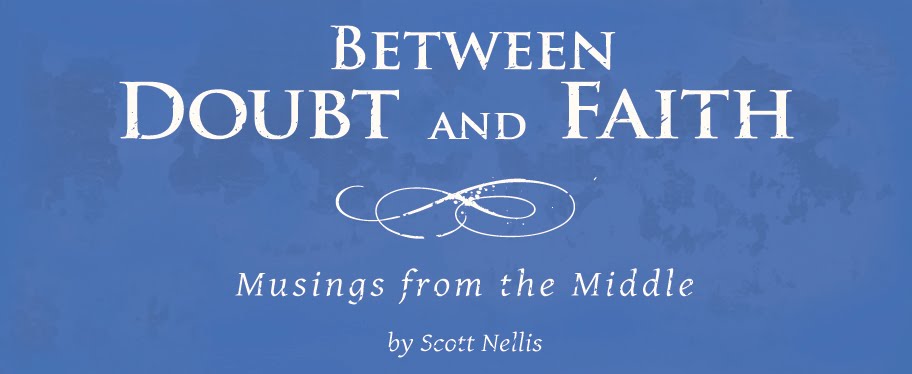It seems that most of my blogs center on an issue that generally bothers me. It's not that I'm a negative person. Of course, I complain too much, just like the next guy. It's my hope that someone out in cyberspace will click on my Facebook page or on this Blogger page and happen to be inspired by one of my writings. That's mainly why I write. I hope to share some knowledge that I've gained in the hopes of breaking false mindsets. With that said, I'm going to write about the "sinner's prayer," as it's commonly referred to by many evangelicals.
There are words within the Christian community that I don't really connect with — evangelism, revival, righteous, fellowship, and, yes, sinner's prayer. I feel that these words have taken on a life of their own. They once meant something special, even holy, but have become entangled in negative stereotypes much like an old, abandoned house wrapped in ivy and overgrowth. It's much like the word 'adult.' The word adult has become so associated with pornography, i.e. 'adult bookstore,' that it holds little footing as to its true meaning. While sad, it's true and we must move on.
I was recently reading a booklet sent to our church. The booklet was about common marital dilemmas and how to gain a biblical view of marriage. It was a good booklet and I found much truth in its pages. Then I got to the last page. It was a page dedicated to God's love and how one can enter into a relationship with him. No problem yet. As I continued to read, though, I felt something that I've felt before — concerned. I read the part about praying the "sinner's prayer" and felt concerned that some might read this text and believe that a relationship with God hinges on praying specific words. This sinner's prayer outlined a sample prayer that one could say to accept God into their life. Also used was the often-quoted verse from Romans 10:9, "If you confess with your mouth the Lord Jesus and believe in your heart that God has raised him from the dead, you will be saved." They actually capitalized the 'H' in him, a creative liberty not found in the Bible. While this verse is very true, using it solely ignores many other verses regarding salvation.
Let's take a quick look at a few of the other Bible verses that describe salvation. To be honest, I'm not sure that the word 'salvation' is even used in most of these verses. The first and most obvious is John 3:16, "For God so loved the world that he gave his one and only son, that whoever believes in him shall not perish but have eternal life." I added the emphasis there to show that belief is the only requirement for eternal life — no words, no actions, just belief. There's also Mark 16:16, which tells some of Jesus's first words after his resurrection, "Whoever believes and is baptized will be saved, but whoever does not believe will be condemned." This time Jesus adds baptism as a means of salvation. There's John 14:6, in which Jesus describes himself as the way and the truth and the life. One of my favorites is a scene in the book of Acts, where, after a violent earthquake, a prison guard was about to stab himself because he thought his prisoners had escaped while under his watch. When he found Paul and Silas still sitting in their cell, he fell trembling before them, and asked what he must do to be saved. Paul and Silas replied, "Believe in the Lord Jesus, and you will be saved — you and your household." So it seems there isn't one exact formula for salvation. But these verses do show a common theme — belief.
Salvation is an astounding notion. It's especially amazing if it's understood properly. This is the foundation for this blog and my concern. I don't want anyone believing that salvation has to look a certain way. For some, a sinner's prayer is how they came to know God personally. That's great. But for many, many others, coming to faith is a slow, ugly, unsteady process in which we sluggishly let our guard down and finally believe that God is real. I think it's rarely an instantaneous event where your inhibitions suddenly fall away. Again, that does happen. But for most, even after they come to faith, doubts and fears tend to creep back in.
I would be hesitant to order a set of these aforementioned booklets. I just don't want people to feel that God requires more than their belief in him. A certain prayer or a deep understanding of salvation isn't needed here. God knows hearts and he's an expert in his field.
Here's an online column from Dare2Share Ministries founder Greg Stier on this topic:
http://www.christianpost.com/article/20101215/3-things-not-to-say-when-sharing-your-faith/
